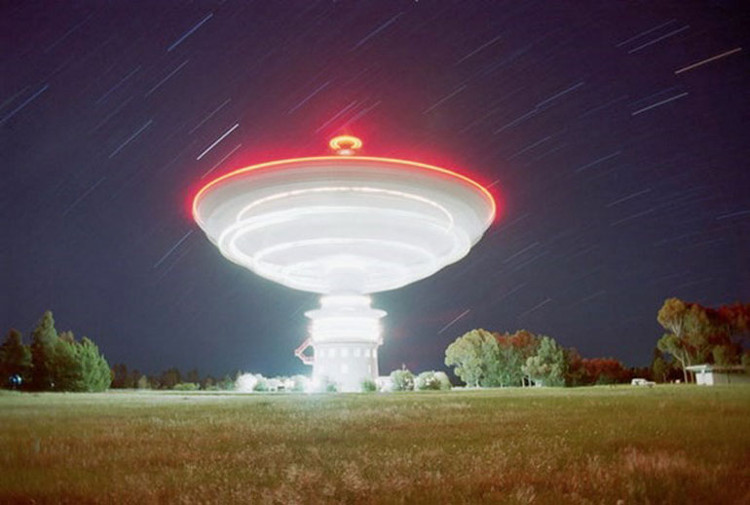Search for aliens by giant telescopes
Scientists in Australia participated in the search for alien-minded life forms by directing an extremely large disk telescope toward Proxima Centauri, one of the closest to the solar system.
Proxima Centauri is a red dwarf just 4.25 light-years away. Turning around its orbit is a Earth-like planet named Proxima b . Scientists speculate that the temperature of Proxima could allow the existence of liquid water here.
The next logical reasoning is that Proxima b is a livable place.
According to Aussie Network News, the Parkes radio telescope in New South Wales will support the search for aliens by scanning radio frequencies that are likely to originate from unexplored civilizations in Space.
The Commonwealth Scientific and Industrial Research Foundation notes that this is Australia's first collaboration with Breakthrough Listen, a 10-year, $ 100 million global project to actively seek out extraterrestrial intelligence.

Parkes radio telescope will support the search for aliens.(Source: huffingtonpost).
According to the New York Times newspaper, Breakthrough Listen was started by technology investor billionaire Yuri Milner in 2015. Global famous names supporting this project include renowned physicist Stephen Hawking, astronomer Frank Drake. , who founded the SETI Institute (Search for Extraterrestrial Intelligence) in California, Earl Martin Rees of Cambridge University, and Ann Druyan, co-author of "Cosmos" television program and wife by the late astronomer Carl Sagan.
"The addition of the Parkes telescope is an important milestone," Milner told Australian media. "These giant tools are the ears of the Earth, and now they will listen to the signals of other civilizations."
The International Radio Astronomical Research Center said that Parkes radio telescopes have "looked" through the Milky Way's dust and gas clouds and found nearly 900 other galaxies, "one-third of that has never been seen before. "
Finding a radio signal of an alien form of life is basically the same as finding a needle in the bottom of a tank. But scientists believe that the Earth's most powerful telescopes are the best opportunity to find the answer to the question of whether people are alone in the universe.
However, Australian Network News quoted John Reynolds, program manager for Commonwealth Scientific and Industrial Research, saying he did not believe the Breakthrough Listen project would make history. But he added that this search effort is not meaningless.
"I'm a little skeptical, but I like the idea," Reynolds said. "I think this is true science, although the chances of success are very small. This is definitely a question that needs an answer, and you will not be able to answer unless you really seek. it".
- Add 'eyes' to find aliens
- NASA wants to turn the Sun into a love glass to search for aliens
- The Chinese race to find aliens
- India participates in building giant telescopes
- Scientists intend to use lasers to
- This is what NASA will use to hunt aliens
- How will we communicate with aliens?
- A billion dollars to find aliens
- Will we find aliens after 1500 years?
- Course to search for aliens
- Scientists call for active contact with aliens
- Trump is about to make money to find aliens?
 Van Allen's belt and evidence that the Apollo 11 mission to the Moon was myth
Van Allen's belt and evidence that the Apollo 11 mission to the Moon was myth The levels of civilization in the universe (Kardashev scale)
The levels of civilization in the universe (Kardashev scale) Today Mars, the sun and the Earth are aligned
Today Mars, the sun and the Earth are aligned The Amazon owner announced a secret plan to build a space base for thousands of people
The Amazon owner announced a secret plan to build a space base for thousands of people